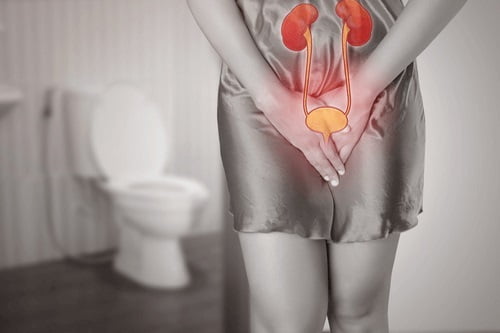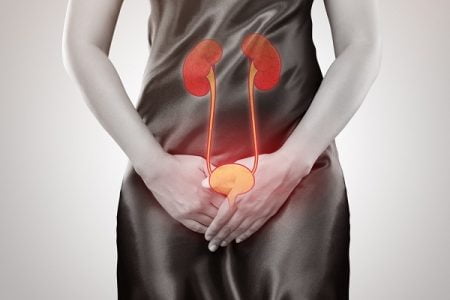Why Is My Pee Burning? 5 Reasons Urination Can Be Painful
- Updated on: Jan 9, 2025
- 4 min Read
- Published on Jan 25, 2023

Urinary issues have serious consequences for our daily lives. A burning sensation after urination is one of the most common complaints.
Painful urination, also known as dysuria, can have a number of potential causes, including issues with the urinary bladder, the urethra, or the perineum. Dysuria is quite prevalent, although it isn’t always a small issue. A number of medical disorders, some more serious than others, can cause pain or burning during urination.
What is a burning sensation after urinating?
When urination causes discomfort or burning, this condition is known as dysuria. This feeling is not an independent medical condition. Instead, it is a sign of a problem in your urinary tract if you experience burning while urinating or right after. That sensation is common during urination for both sexes.
How do you feel about it? It’s not unusual to feel like your urine is on the hot side, but this issue typically makes it seem like your urine is much hotter than it actually is. Possible symptoms include tingling, soreness, and general unease.
Why does your pee burn?
Here are the top five reasons why you may be experiencing the discomfort of having to urinate frequently.
1. Urinary tract infection (UTI)
An infected urinary tract is a typical cause of painful urination. As the name implies, a urinary tract infection (UTI) begins in the bladder.
Eventually, if the infection is not treated, it will move up the urinary tract and attack the kidneys, a condition known as pyelonephritis. Urinary burning is a common symptom of a urinary tract infection (UTI) and should prompt a visit to the doctor.
2. Sexually Transmitted Diseases (STI)
Urine burns are a common symptom of sexually transmitted diseases (STDs). Possible examples of such infections are chlamydia, gonorrhea, and trichomoniasis. These may lead to vaginal or penile discharge in addition to burning when urinating.
3. Bladder or Urethra Inflammation
Urinary burning can occur even in the absence of an infection. This is usually brought on by interstitial cystitis, which is bladder inflammation. Bladder inflammation is often a long-term condition. Mild to severe pelvic and urinary pain is a common symptom.
Urethritis, inflammation of the tube connecting the bladder with the exterior of the body, is another common urinary tract disorder. Although sexually transmitted infections (STIs) like gonorrhea are a common trigger for this kind of inflammation, there are other potential origins to consider.
A urologist is the usual medical professional to make the diagnosis. As a result of these disorders, dysuria is common, but it can be treated in a number of different ways.
4. Vaginal Infection
An infection in the vaginal area is another potential cause of painful urination. Patients with vaginal infections may suffer burning when urinating due to the proximity of the vaginal opening to the urethra. Inflammation of the vulva, induced by the infection, might increase the pain felt when urinating. Dysuria can be caused by a variety of vaginal diseases, the most common of which are yeast infections, bacterial vaginosis, and trichomonas.
5. Prostate Infection
Prostatitis, an infection of the prostate, can cause pain during urination in males. This is because the prostate is located close to the bladder. Fever, pelvic pain, and back pain are just a few of the numerous symptoms that may occur due to this infection. In order to diagnose this problem and decide the most effective treatment, doctors typically do a urinalysis and a prostate exam on their patients.
6. Drug Induced Bladder Disorder
The bladder can be very vulnerable when substances, excess alcohol and drugs are involved due to its complex nature. Even without a UTI, you may still experience many of these noticeable symptoms if you have been prone to substance addiction. Drug metabolites can be secreted in the urine making it very uncomfortable to go to the bathroom. The first port of call would be getting to the root of the problem with professional Substance Abuse Treatment. Reducing your use of substances and drugs may begin to settle the symptoms and reduce stress on the bladder. If you have experienced any of these side effects it’s important to speak to a healthcare professional and find support for the long-term. Substance abuse can not only have an effect on your physical health, but it can also take its toll on your mental health when it’s not dealt with quickly and effectively.
How to reduce the burning sensation while peeing?
Antibiotics are the usual go-to for curing UTIs. Phenazopyridine is used after other pain relievers have failed. In addition, there are several easy adjustments to your lifestyle that could help avert UTIs. These measures lessen the likelihood that bacteria, the primary cause of UTIs, will enter the urinary tract. Keep in mind:
- Increase the frequency of your urination. When you have to go to the bathroom, don’t hold it in. According to health experts, you should go to the bathroom and empty your bladder at least once every four hours. Furthermore, urinating soon after sexual activity may help flush bacteria out of the urethra.
- Hydrate yourself more: A higher water intake has been linked to a decreased risk of recurring UTIs. Get your daily water intake up to at least 2 liters (9 cups).
- Cleaning and wiping should be done in a more secure manner. Wiping from front to back helps avoid bacterial infection. It’s best to steer clear of parabens, dyes, and scents in your feminine hygiene products. To avoid using soap, it is best to use water for cleaning purposes. And unless your practitioner tells you otherwise, never, ever douche.
- Use another method of contraception: Avoid using a diaphragm and spermicide, including spermicidal condoms, if you have recurrent urinary tract infections. The risk of UTIs can be reduced by using alternative birth control methods, which your doctor or clinician can discuss with you.
Conclusion
A burning feeling during urination is not an illness in and of itself, but rather a symptom of a more serious issue. Urinary tract infections are the most common cause of this ailment. Of course, there are a plethora of other reasons why men and women have these problems.
There are several different natural therapies that can assist lessen the pain you’re feeling. In the event that the issue persists, it is better to consult a urologist.
FAQs
1. Does burning urine ever stop on its own?
Though some cases of UTI may clear up without antibiotics, in most cases they do. A diagnosed UTI should be treated with antibiotics, though in some situations the body can cure a mild infection on its own.
2. What does burn pee feels like?
Urinary tract infection (UTI) or kidney infection can cause urine to feel warm to the touch and make urination painful. Acidic urine. That means it can cause a painful burning feeling if it touches an open wound, no matter how minor.
3. Can an infection spread through urine?
There is no spread of UTIs. UTI-causing germs, however, can spread from one person to another during sexual activity. People can help stop this from happening by utilizing barrier contraception and maintaining high standards of personal cleanliness in all sex-related situations.













1 Comment
Thanks for the heads up that experiencing a burning sensation while peeing could be a sign that your bladder needs help. I have a colleague who has been experiencing something similar lately while at work. I should talk to them about finding a healthcare center that offers a bladder diagnosis before it gets worse.